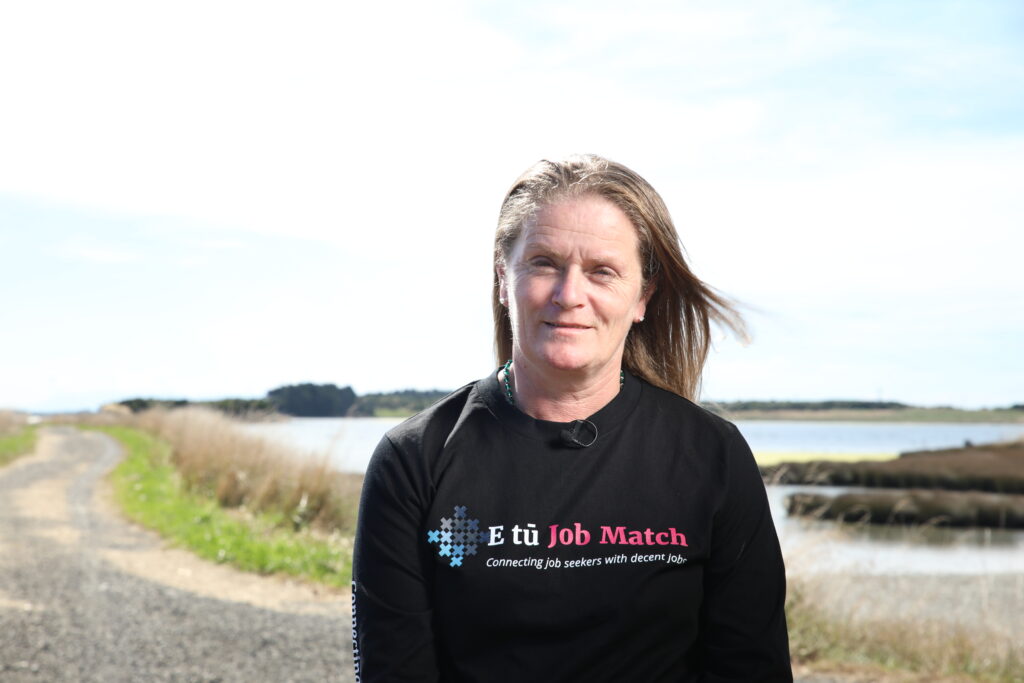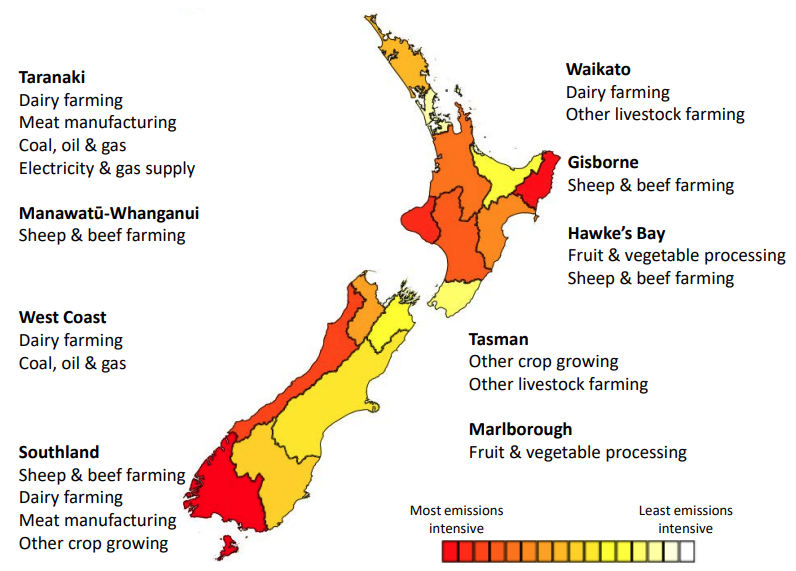Budget 2023 makes important investments in labour market programmes that support people to find and retain work. This is welcome in the context of a forecast rise in unemployment and will help build resilience in the face of future economic shocks.
Budget 2023 also makes significant investments in research and development and industry transformation to improve productivity and the development of high-wage jobs.

“Just Transition in Southland really matters, because when you’ve got change of industry, you could have change of job for any individual person – and it needs to be a job that’s the same or better in terms of pay and conditions, compared to what they’ve already got. We’ve got to maintain skillsets and upskill people, so that we retain the population here in Southland.”
“If we decline in population, that’s a whole different cycle and would mean people in our community not spending money. Therefore, businesses will decline, services decrease, your range of shops decreases, and basically speaking, some communities do not revive themselves. They just never come back from it.”
Karena Kelland, Industry Council Convenor (Public and Commercial) and E tū National Executive member
STATE OF THE SECTOR
Economic shocks and structural change, whether driven by climate change, pandemics, technology change, or demographic change, require just transitions. Just transitions mitigate the negative effects of change on workers and communities, and capitalise on the opportunities that change presents.
In the past, economic change in Aotearoa NZ has had vastly unequal impacts. Māori and low-income households have typically been among the worst affected – as happened, for example, during the market reforms in the 1980s and 1990s.
Within the just transitions space, three priorities relate directly to the future of work and the CTU’s objective of building a high-wage, low-emissions economy in which good work is available to all.
First, we need to promote the development of good jobs through active industrial policy. The Labour Government has made progress on this through the development of the eight Industry Transformation Plans (ITPs) which identify actions to grow high-productivity sectors of the economy. These plans require significant investment in industrial development over the long-term.
Second, we need to build our capacity to facilitate just transition processes. The Government has set up social partnerships in Southland and Taranaki to deliver just transitions for these communities in response to the potential closure of large employers. The Future of Work Tripartite Forum – a partnership between the Government, the CTU, and Business NZ – also has a mandate to identify just transition priorities. These partnerships require ongoing funding to be successful. There may also be a need for partnerships to be set up in other regions of the country in the future.
Third, we need to expand the provision of high-quality active labour market programmes (ALMPs). Job loss can have long-term impacts on one’s wages and health, and ALMPs that assist people (back) into employment are therefore an important part of the social safety net. Effective ALMPs are particularly important in the context of the forecast rise in unemployment over the next couple of years. They are also important in the long-term transition to new industries and jobs, ensuring efficient transferable skills allocations, supporting productivity growth, and guarding against wage scarring.

BUDGET ACTIONS
Budget 2023 provides $75 million to progress actions identified in three Industry Transformation Plans (Agritech, Digital Technologies, and Tourism). $451 million has been allocated to construct three multi-institution research, science, and innovation hubs in the Wellington region. These hubs will be focused on research for health and wellbeing; oceans, climate, and hazards; advanced manufacturing; and biotech and energy. This is supported by a $53 million allocation to fund research fellowships and an applied doctoral training scheme.
The Budget also continues to support the Future of Work. $27 million has been allocated to the Pacific Community Resilience and Wellbeing fund, which aims to strengthen the Pacific Workforce, and toward the implementation of the Pacific Employment Action Plan, which aims to improve labour market outcomes for Pacific Peoples. $80.1 million total operating and $47.5 million total capital has been allocated to permanently reinstate the Training Incentive Allowance to assist sole parents, disabled people, and their carers to study at NZQA levels 1–7. And $600,000 has been allocated to support Māori leadership in the Future of Work Forum.
A total of $110 million has been allocated to expanding ALMPs in response to a review of the programmes. This includes investment in careers guidance services; job application and preparation support; community-based employment solutions for young people (through the Mayors Taskforce for Jobs and Ngā Puna Pūkenga); an ‘Early Response’ allocation of $7.6 million for people who may experience risk of economic displacement; and employment programmes that support disabled New Zealanders to find and retain work. Meanwhile, $251 million has been allocated to fund the Ministry of Social Development’s front-line services for income support and employment services, which will help support the delivery of ALMPs.
CTU ANALYSIS
It is reassuring to see funding provided to action the recommendations of several ITPs; this will help turn these plans into outcomes. The CTU would like to see the development of a more assertive industrial policy over the next couple of years. This will require significant and ongoing investment across the industries with active ITPs to grow productive capacity and increase the provision of high-wage jobs.
Other than the important allocation to support Māori leadership in the Future of Work Forum, further investment in facilitating just transition processes was not apparent in Budget 2023. However, the CTU would expect that the $71 billion allocated to infrastructure investment over the next five years will be delivered with a just transitions process, including through the allocations to support the recovery and resilience of communities affected by Cyclone Gabrielle.
We are also encouraged to see investments being made in ALMPs and MSD’s frontline services. Unemployment is expected to rise above 5% over the next two years, and it is important that those affected are well-supported to reduce wage scarring. However, one area that will require further investment are ALMPs that respond to large-scale regional job loss. For example, in Southland nearly 1,000 workers are employed by the region’s largest employer, the New Zealand Aluminium Smelter, which is at risk of closure in 2024.
While the ALMP supports announced in Budget 2023 are a step in the right direction, compared to many other wealthy countries, the proportion of funding allocated to ALMPs in New Zealand remains low. In the long term, it is important to continue efforts in building a strong ALMP (Active Labor Market Policy) system. This system should support the resilience of our people and economy during times of change, facilitate skills development and matching, and minimise the negative effects of job loss on the income and well-being of workers and their whānau.